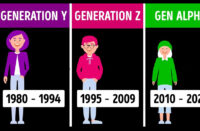Memes are one of the greatest phenomena in Internet culture and an example of viral sharing online. For anyone unsure what exactly “memes” are, memes are photos, illustrations or picture excerpts from films that are usually edited by anonymous users and thus placed in completely new funny context. On platforms such as 9gag and 4Chen, the Internet jokes spread like wildfire and are popular with the online community. However, we rarely consider the legal difficulties when sharing memes as they are usefully just used light-hearted purposes. Well sadly no matter how light-hearted the intentions copyright right still matters. So, let’s look into those possible complications when sharing and creating memes online.
It wasn’t until 2015 that a case made headlines, in which Getty Images made a claim of EUR 785.40 to a blog for the use of the meme “Socially Awkward Penguin”. The penguin pictured, waddling is a celebrity in the meme world and is mainly used for short jokes with a twist. According to Getty Images, it has held the rights to the original photography for several years and has demand a license fee from the user for its use. The owners of the German blog, who had used the meme illegally, responded to Getty’s demand by paying the fine and deleted the meme from their site. This case raises some questions for many internet users- was Getty Images right and did the blog’s owners really commit a copyright infringement when they shared the image? And could I have the same fate if I publish a meme?
Every meme has copyright. Only when the image is under a Creative Commons license or in the public domain. But are there exceptions for memes whose authors are unknown and whose creations can be found on the Internet a thousand times?
In fact, there are some approaches that might well justify the creation of memes in connection with copyright law. Fair Dealing could allow usage however it doesn’t quite cover the use of
memes. In order for this to be valid the picture in question should be necessary as a support for one’s own theses; moreover, an image can only be justified as a used fairly if it plays a secondary role in the context. Since a meme is only rarely used to support theses, nor do they contained images play a secondary role it is impossible to be covered by Fair Dealing.
We can see that no matter how hard we try to legalise the use of the funny pictures the copyright exists and can be legally enforced. But if that is the case, aren’t thousands of meme producers and distributors abusing copyright? Of course, this is not always the case. With memes on platforms such as 9gag, the creator of the individual memes is usually unknown. This means that no one can be directly informed they have abused copyright. On own websites and blogs, however, you should refrain from using memes in any case, because otherwise you risk a similar warning as the users of the copyrighted “Socially Awkward Penguin”.
 But also, the photographers of the original memes pictures have to be careful. If a private person is the centre of a meme, this can constitute a violation of the personal rights. A famous example of this is the so called “Techno-Viking”, which was filmed by an artist on the “Fuckparade” in 2000. The video spread quickly on the internet and is the basis for many memes circulating on the web. The artist took the viral success of his video as an opportunity to offer T-shirts, cups and the like with the photo of the dancing man. A few years after the admission, the dancer finally contacted the video creator and demanded a cease-and-desist declaration and compensation for damages, as he felt that his right to privacy had been violated.
But also, the photographers of the original memes pictures have to be careful. If a private person is the centre of a meme, this can constitute a violation of the personal rights. A famous example of this is the so called “Techno-Viking”, which was filmed by an artist on the “Fuckparade” in 2000. The video spread quickly on the internet and is the basis for many memes circulating on the web. The artist took the viral success of his video as an opportunity to offer T-shirts, cups and the like with the photo of the dancing man. A few years after the admission, the dancer finally contacted the video creator and demanded a cease-and-desist declaration and compensation for damages, as he felt that his right to privacy had been violated.
It’s now obvious memes are a legally sensitive subject and should be created or used for commercial purposes only after permission from the photographer of the original image is given. An exception is, of course, when the image is public domain or under a Creative Commons license, such as the new “Socially Awkward Penguin”.
Although the law is very restrictive in this respect, and does not grant the creators of memes a great deal of freedom, in practice there are relatively few warnings in relation to the millions of memes due to copyright infringements. As already mentioned, this is simply due to the anonymity of the creators. So, an end to Grumpy Cat grin, and picture of Sean Bean waiting on winter is far out of sight at the moment.
It is a good idea not to edit and publish memes on your own commercial platform. Even if you do not have to fear a wave of copyright abuse claims, it is still possible. If you are not sure if the picture is public domain or is subject to a Creative Commons license, you run the risk that the published contribution will not be classified as free use by the court. In the worst case, this could result in a considerable fine.
So, we might be laughing at potential copyright abuse cases every time we share and see memes, but let’s be honest, without them, the photos that describe certain situations with pinpoint accuracy, the Internet would not be what it is today.
©Sophia Höttinger/ COPTRACK.com | 2017 Website: https://www.copytrack.com/meme-copyright/







